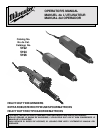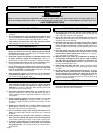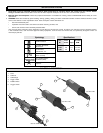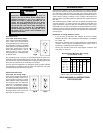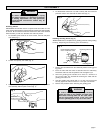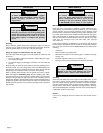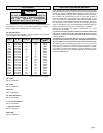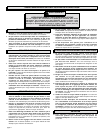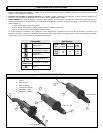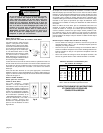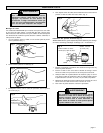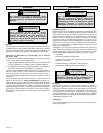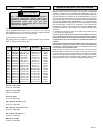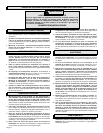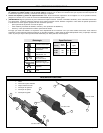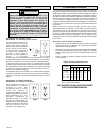
page 3
1. Hold power tools by insulated gripping surfaces when performing an operation where the cutting tool may contact hidden
wiring or its own cord. Contact with a "live" wire will make exposed metal parts of the tool "live" and shock the operator.
2. Maintain labels and nameplates. These carry important information. If unreadable or missing, contact a MILWAUKEE service facility for a free
replacement.
3. WARNING! Some dust created by power sanding, sawing, grinding, drilling, and other construction activities contains chemicals known to cause
cancer, birth defects or other reproductive harm. Some examples of these chemicals are:
• lead from lead-based paint
• crystalline silica from bricks and cement and other masonry products, and
• arsenic and chromium from chemically-treated lumber.
Your risk from these exposures varies, depending on how often you do this type of work. To reduce your exposure to these chemicals: work in
a well ventilated area, and work with approved safety equipment, such as those dust masks that are specifically designed to filter out
microscopic particles.
SPECIFIC SAFETY RULES
FUNCTIONAL DESCRIPTION
1. Cord
2. Collet nut
3. Collet flange
4. Toggle switch
5. Paddle switch
6. Trigger switch
Amperes
Double Insulated
Symbology
Canadian Standards
Association
Underwriters
Laboratories, Inc.
Volts Alternating Current/
Direct Currenty
No Load Revolutions
per Minute (RPM)
No Load
RPM
21,000
21,000
14,500
Volts
AC/DC
120
120
120
Cat.
No.
5192
5194
5196
Specifications
Amps
4.5
4.5
11
Cat. No. 5192
2
3
4
1
6
1
2
2
5
1
Cat. No. 5194
Cat. No. 5196



